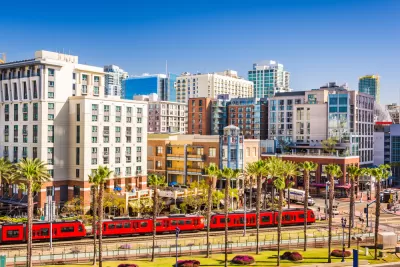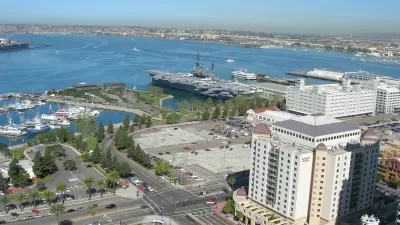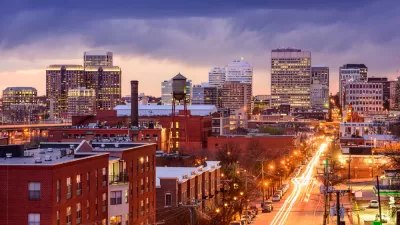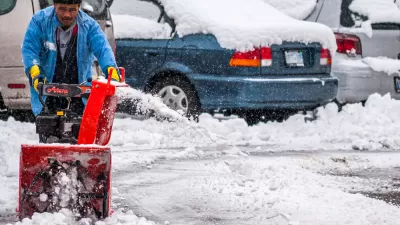After approving parking reforms for swaths of residential areas in the city in 2019, the city of San Diego is expanding the effort to select commercial areas in the city.

"San Diego took the bold and controversial step Tuesday of wiping out parking requirements for businesses in many neighborhoods to accelerate efforts to make the city less car-reliant and more climate-friendly," reports David Garrick for The San Diego Union-Tribune.
The new parking requirements will affect businesses located near public transit or in small plazas near residential areas, according to Garrick.
This is not the first wave of parking reforms for the city of San Diego. After raising the possibility in 2018, the city began the process of unbundling parking in 2019, eventually approving an ordinance that eliminated parking requirements for new condominium and apartment complexes in neighborhoods near mass transit in March of that year. The city started to examine the possibility of removing parking requirements for some commercial developments in June of this year.
The parking requirements approved this week apply both to new and existing business. According to Garrick: "New businesses in those areas would no longer have to provide any parking spaces for customers or staff. And existing businesses could immediately transform their parking spots into outdoor dining or extra retail space."
The source article includes soundbites to encapsulate the political debate that preceded this week's City Council's vote.
FULL STORY: San Diego adopts new policy wiping out parking requirements for many businesses

Manufactured Crisis: Losing the Nation’s Largest Source of Unsubsidized Affordable Housing
Manufactured housing communities have long been an affordable housing option for millions of people living in the U.S., but that affordability is disappearing rapidly. How did we get here?

Americans May Be Stuck — But Why?
Americans are moving a lot less than they once did, and that is a problem. While Yoni Applebaum, in his highly-publicized article Stuck, gets the reasons badly wrong, it's still important to ask: why are we moving so much less than before?

Using Old Oil and Gas Wells for Green Energy Storage
Penn State researchers have found that repurposing abandoned oil and gas wells for geothermal-assisted compressed-air energy storage can boost efficiency, reduce environmental risks, and support clean energy and job transitions.

Minneapolis Bans Rent-Setting Software
Four cities have enacted restrictions on algorithmic software that can inflate rent costs.

Oakland to Add 244 New EV Chargers
Oakland plans to launch its new charging network at eight locations by the end of 2025.

Jane Goodall Inspires with Message of Hope, Resilience, and Environmental Action
Speaking in Pasadena, Jane Goodall offered a hopeful and inspirational message, urging global compassion, environmental responsibility, and the power of individual action to shape a better future.
Urban Design for Planners 1: Software Tools
This six-course series explores essential urban design concepts using open source software and equips planners with the tools they need to participate fully in the urban design process.
Planning for Universal Design
Learn the tools for implementing Universal Design in planning regulations.
Heyer Gruel & Associates PA
City of Moreno Valley
Institute for Housing and Urban Development Studies (IHS)
City of Grandview
Harvard GSD Executive Education
Salt Lake City
NYU Wagner Graduate School of Public Service
City of Cambridge, Maryland





























